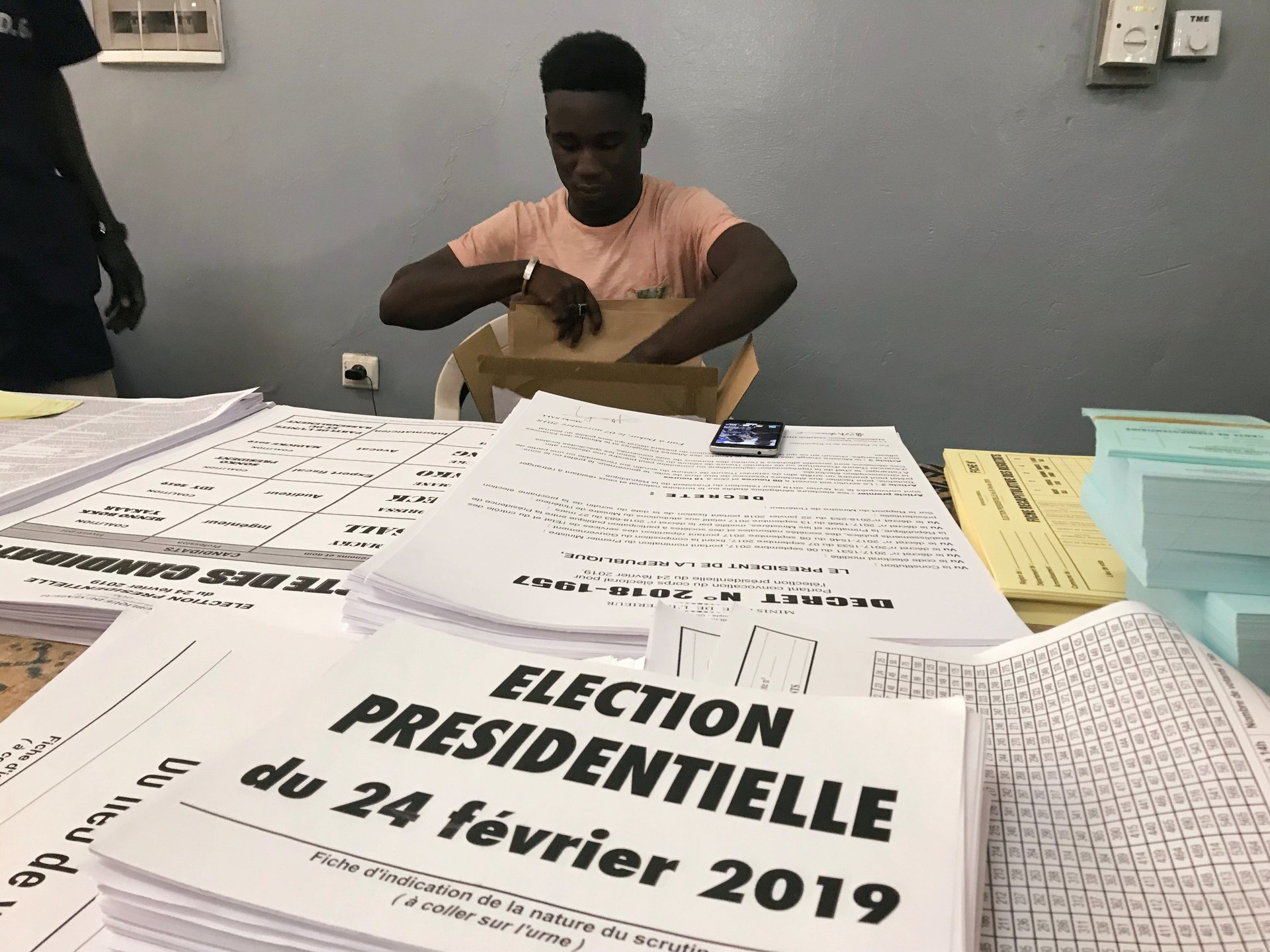There’s another African election this weekend few people are talking about
Nigeria’s delayed election has grabbed headlines in African and international media. With Africa’s most populous country delaying its Feb. 16 elections over logistics issues, Nigerians will now vote tomorrow (Feb. 23).


Nigeria’s delayed election has grabbed headlines in African and international media. With Africa’s most populous country delaying its Feb. 16 elections over logistics issues, Nigerians will now vote tomorrow (Feb. 23).
But the saga is happening at the expense of Senegal, which is set to vote for its next president on Sunday (Feb. 24) in polls which, in comparison to Nigeria’s, have been far less discussed. Unlike Nigeria, Senegal has had no logistics-related problems so far, and election observers expect the vote to go forward as planned. But like in Nigeria, Senegal’s youth—a large majority of the 6.6 million registered voters—will likely decide the outcome of the vote.
Following constitutional reforms in 2016, Senegal’s next president will serve only five years in office, down from the seven-year terms served by former presidents. The reforms also limit presidents to two terms in office and pegs ages of presidential candidates at a maximum of 75. The reforms were a key campaign promise of incumbent president Macky Sall when he won office in 2012.
Sall, now seeking re-election as the front-runner candidate, is up against a mixed opposition pool including establishment politicians like Idrissa Seck, a former prime minister, and Madické Niang, a former foreign minister, as well as anti-establishment candidates like Ousmane Sonko and Issa Sall, both with meager experience in politics. Sonko has particularly drawn comparisons (link in French) to US president Donald Trump as he’s whipped up nationalist sentiments with rhetoric like promising to, if elected, change Senegal’s CFA Franc currency, a legacy of its colonial ties to France. The 45-year old’s prominent use of social media as a campaign tool is another oft-cited similarity with Trump.
But for a new electoral measure, the field of candidates in Senegal could have been much larger. The measure requires candidates to secure signatures from at least 0.8% of the electorate, spread across seven of the country’s 14 regions. Only five of the 87 candidates who signaled an interest in running met the requirement, which is explained as a move to ensure only serious, viable candidacies.
In contrast, Nigeria’s elections will see over 70 candidates on the ballot, even though only two—president Muhammadu Buhari of the ruling All Progressives Congress (APC) and Atiku Abubakar of the opposition People’s Democratic Party (PDP)—have a realistic shot at winning. In fact, Nigerian presidential candidates are dropping out just ahead of the election and pledging support to one of the front-runners.
Senegal’s president-elect will be required to win over 50% of votes to secure victory in the first round of the polls. In the event that none of the contenders garner enough votes, the top two will contest a run-off.